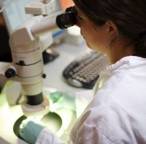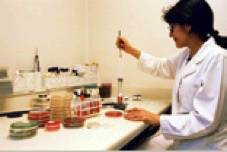Q&A
Copyright © Diagnóstico Medico Dra. Mayans. All rights reserved.


Contact us with questions about our services at : (809) 571-0861
















What is dengue fever?
Dengue fever is an acute viral disease. The incubation period is 3 to 14 days. Symptoms include high fever for three to five days, severe headache, muscle and joint pain, eye pain, nausea, vomiting and skin rash. Generally, younger children have a milder illness than older children and adults.
What is dengue hemorrhagic fever (DHF)?
DHF is the most severe form of dengue. It can be fatal if unrecognized and not properly treated. DHF is caused by infection with the same viruses that cause dengue. With early diagnosis and good medical management, mortality due to DHF can be less than 1%.
How is dengue and dengue hemorrhagic fever (DHF) transmitted?
Dengue virus is transmitted to humans through mosquito bites. There is no person-to-person spread. The mosquito Aedes Aegypti, a vector known to transmit the disease, can be found in DR. The mosquito likes to bite people during daytime, especially two hours after sunrise and a few hours before sunset.
How is dengue diagnosed?
A. Blood tests and clinical findings can determine if a person is infected. Our Lab is the first in the north cost to provide the early diagnosis test NS1 Ag .

I already had dengue. Can I be infected again?
Yes, There are four types of dengue viruses. Exposure to one type provides immunity to only that specific type of dengue virus. The secondary infection has higher risk to become a dengue hemorrhagic fiver.
What is the treatment for dengue?
There is no specific medication for treatment of a dengue infection. Persons who think they may have dengue should consult a physician ASP. In most cases rest, drink plenty of fluids is enough. Also analgesics (pain relievers) with acetaminophen and avoid those containing aspirin.
What can be done to reduce the risk of acquiring dengue?
There is no vaccine for preventing dengue. The best preventive measure for residents
living in areas infested with Aedes aegypti is to eliminate the places where the mosquito lays her eggs, primarily artificial containers that hold water.
1. Put all used cans and bottles into dustbins with cover.
2. Change water for plants at least once a week, leaving no water in the saucers underneath flowerpots.
3. Cover tightly all water containers, wells and water storage tanks.
4. Keep all drains free from choke.
5. Top up all defective ground surfaces to prevent the accumulation of stagnant water.
6. Wear long-sleeved clothes and long trousers.
7. Use insect repellent over the exposed parts of the body.
8. Use mosquito screens or nets when the room is not air-conditioned
* If you have any dengue symptoms, report this immediately to your physician and avoid taking aspirin. An early diagnosis can save your life.


Stay healthy!
Get a Basic Lab and Imaging check up at Diagnóstico Médico Dra. Mayans for only RD$ 2900 (Price RD$ 3900: You Save 25%)
Visit us in Plaza Ocean one and get your check up done today!
* This promotion is valid only for Cabarete residents and our Facebook fans till December 31.
Diagnóstico Médico Dr Mayans your trusted name in Diagnostics!


